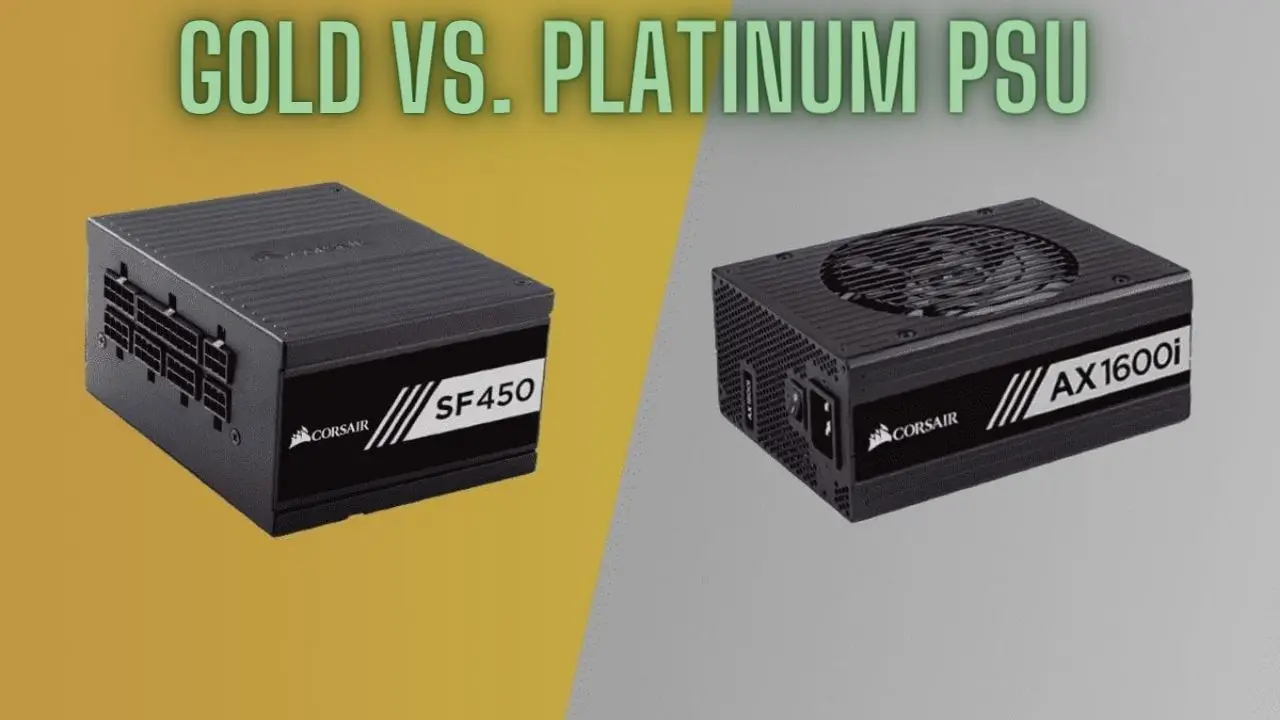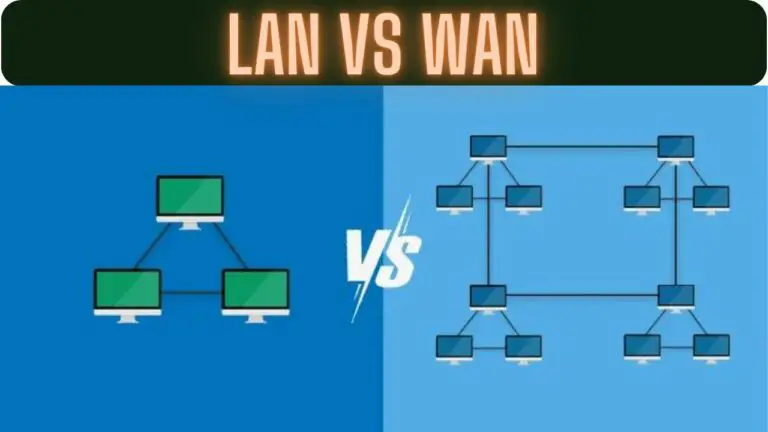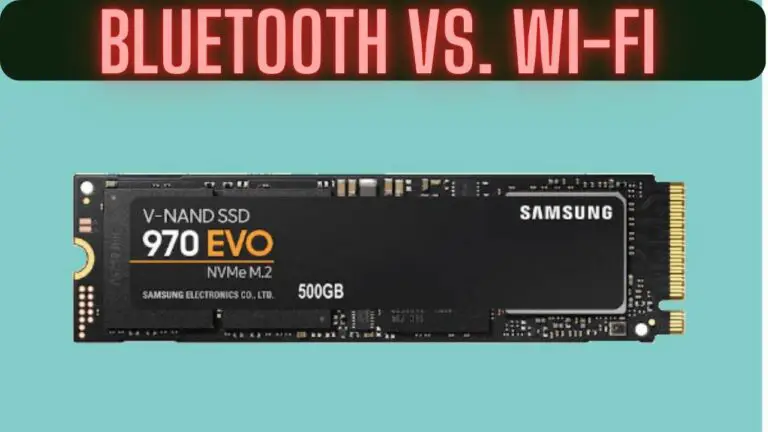Gold vs. Platinum PSU: Unveiling the Power Supply Unit Battle
1. Introduction
When it comes to building or upgrading a PC, many components take the spotlight: the CPU, GPU, RAM, and storage drives. Yet, there’s one unsung hero that silently powers your system, ensuring its smooth operation—the Power Supply Unit (PSU). As technology advances, power efficiency has become a primary concern for PC builders and enthusiasts. PSU efficiency ratings, represented by certifications such as Gold and Platinum, have emerged as key factors in determining which power supply unit is right for your needs.
In this comprehensive guide, we’ll delve into the world of PSUs, explore the differences between Gold and Platinum certifications, and help you make an informed decision about which PSU is ideal for your PC.
1.1. The Importance of Power Supply Units
Power Supply Units (PSUs) are the unsung heroes of any computer system. They provide the necessary electrical power to run your CPU, GPU, and all the components that make your PC come to life. The choice of a PSU can significantly impact your system’s stability, performance, and energy efficiency. As PCs become more power-hungry, choosing the right PSU is crucial for both everyday computing and high-performance tasks like gaming or content creation.
1.2. Efficiency Ratings: Gold vs. Platinum
Efficiency ratings have become a central focus for PSU manufacturers and consumers alike. These ratings help users understand how effectively a PSU converts the electricity from the wall into power for their PC. Gold and Platinum are two of the most popular PSU efficiency ratings, and they offer varying levels of efficiency and cost. In this guide, we’ll explore the differences and help you decide which is the best fit for your system.
2. Understanding PSU Efficiency Ratings
2.1. Bronze, Silver, Gold, Platinum, and Titanium
PSU efficiency ratings are classified into categories that include Bronze, Silver, Gold, Platinum, and Titanium, in ascending order of efficiency. Each of these ratings signifies a specific percentage of energy loss during the power conversion process. Gold and Platinum represent two popular middle-ground options, offering a balance between efficiency and cost.
2.2. 80 PLUS Certification
The 80 PLUS certification program sets the standard for PSU efficiency ratings. This certification ensures that a PSU meets or exceeds certain efficiency requirements at different load levels. These requirements are typically expressed as a percentage, indicating how efficiently the PSU converts AC power from the wall into DC power for your PC components. Gold and Platinum PSUs are part of this certification program.
3. Gold vs. Platinum: Key Differences
3.1. Efficiency Levels
- Gold: Gold-certified PSUs have an efficiency rating of around 87% to 90%. This means they convert 87-90% of the electrical energy from the wall into usable power for your PC. The rest is lost as heat.
- Platinum: Platinum-certified PSUs are more efficient, with ratings of around 90% to 92%. This results in less energy loss and, consequently, lower power consumption.
3.2. Cost
- Gold: Gold-certified PSUs are generally more affordable than their Platinum counterparts. They offer a good balance between efficiency and cost, making them a popular choice for many users.
- Platinum: Platinum-certified PSUs are more expensive due to their higher efficiency. While they can save on energy costs over time, the initial purchase price is higher.
3.3. Environmental Impact
- Gold: Gold-certified PSUs are more energy-efficient than lower-rated PSUs, which means they reduce energy consumption and have a smaller carbon footprint compared to Bronze or Silver PSUs.
- Platinum: Platinum-certified PSUs are even more energy-efficient, leading to further reductions in energy consumption and environmental impact.
3.4. PSU Lifespan
- Gold: Gold-certified PSUs generally have a longer lifespan due to their better build quality and lower operating temperatures resulting from improved efficiency.
- Platinum: Platinum-certified PSUs can also have extended lifespans due to their high-quality components and reduced heat generation.
3.5. Compatibility
- Gold: Gold-certified PSUs are compatible with a wide range of systems, making them a good choice for general computing needs and gaming setups.
- Platinum: Platinum-certified PSUs are suitable for more demanding systems, including high-end gaming PCs and workstations that require high efficiency and stable power delivery.
4. Pros and Cons of Gold-Certified PSUs
4.1. Pros
- Efficiency: Gold-certified PSUs offer a good balance between efficiency and cost, making them an ideal choice for cost-conscious users who still want improved power efficiency.
- Cost-Effective: They are more affordable than Platinum-certified PSUs, providing a cost-effective solution for most users.
- Energy Savings: Gold-certified PSUs can lead to energy savings compared to lower-rated PSUs, helping reduce electricity bills.
- Widely Compatible: They are compatible with a wide range of systems, from budget PCs to mid-range gaming rigs.
4.2. Cons
- Lower Efficiency: While more efficient than Bronze or Silver PSUs, Gold-certified PSUs are not as energy-efficient as Platinum PSUs and may result in slightly higher energy costs over time.
- Not Ideal for High-End Systems: Gold-certified PSUs may not be the best choice for high-end gaming PCs or professional workstations that require top-tier efficiency and performance.
5. Pros and Cons of Platinum-Certified PSUs
5.1. Pros
- High Efficiency: Platinum-certified PSUs offer top-tier efficiency, resulting in reduced energy consumption and lower electricity bills.
- Eco-Friendly: They have a lower environmental impact due to their reduced energy consumption, making them an eco-friendly choice.
- Stable Power Delivery: Platinum-certified PSUs provide stable power output, ensuring smooth and reliable operation, which is crucial for high-performance systems.
- Longer Lifespan: They typically have better build quality and lower operating temperatures, which can extend the PSU’s lifespan.
5.2. Cons
- Higher Initial Cost: Platinum-certified PSUs are more expensive than Gold-certified PSUs, making them less budget-friendly.
- Overkill for Basic Systems: For basic computing tasks, Platinum-certified PSUs may be unnecessary, as the energy savings might not justify the higher cost.
6. Choosing the Right PSU for Your Needs
6.1. General Use
- If you have a budget-conscious system for general computing tasks, a Gold-certified PSU is a suitable choice, offering a good balance between efficiency and cost.
6.2. Gaming
- For gaming PCs, especially mid-range builds, a Gold-certified PSU provides the necessary efficiency without breaking the bank.
6.3. Workstation and High-Performance PCs
- For high-end gaming PCs, professional workstations, and other power-hungry systems, a Platinum-certified PSU ensures stable and efficient power delivery.
6.4. Energy Efficiency and Environmental Considerations
- If reducing your environmental impact and long-term energy savings are top priorities, a Platinum-certified PSU is an excellent choice.
7. Price-Performance Ratio: Gold vs. Platinum
7.1. Cost Per Watt Saved
- Gold-certified PSUs offer a lower initial cost, making them more cost-effective in the short term.
- Platinum-certified PSUs are pricier initially but can save you more on energy costs over the long term.
7.2. ROI and Energy Savings
- The return on investment (ROI) for a Platinum-certified PSU in terms of energy savings can take longer to realize compared to a Gold-certified PSU.
- The choice between Gold and Platinum ultimately depends on your energy consumption and how long you plan to use the PSU.
8. Future of PSU Efficiency
8.1. Titanium Certification
The Titanium certification, higher than Platinum, represents the next level of PSU efficiency. Titanium PSUs are the most energy-efficient, but they come at a premium price. They are suitable for ultra-high-end systems and environments where every watt of electricity counts.
8.2. Energy-Efficient Components
As technology advances, components throughout the PC are becoming more energy-efficient. This means that even a lower-rated PSU can be sufficient for future systems, reducing the need for top-tier efficiency.
9. FAQS
What does “Gold” and “Platinum” mean in PSU certifications?
Gold and Platinum are efficiency certifications for Power Supply Units (PSUs). They indicate how efficiently a PSU converts AC power from the wall into DC power for your computer components. Platinum represents a higher level of efficiency than Gold.
How does PSU efficiency affect my system?
PSU efficiency affects your system in terms of power consumption and energy savings. A more efficient PSU converts a higher percentage of the electrical energy from the wall into usable power, reducing energy waste and potentially lowering your electricity bills.
What are the efficiency levels for Gold and Platinum PSUs?
Gold-certified PSUs have an efficiency rating of around 87-90%, while Platinum-certified PSUs are more efficient, with ratings of around 90-92%.
Are Platinum-certified PSUs more expensive than Gold-certified PSUs?
Yes, Platinum-certified PSUs are generally more expensive than Gold-certified PSUs due to their higher efficiency and build quality. However, they can lead to energy savings over time.
Which PSU certification is better for gaming?
Both Gold and Platinum PSUs can be suitable for gaming, depending on your gaming system’s power requirements. Gold-certified PSUs offer a good balance between efficiency and cost, making them a cost-effective choice for many gamers. Platinum-certified PSUs are ideal for high-end gaming PCs that demand stable and efficient power delivery.
Are Platinum-certified PSUs necessary for basic systems?
Platinum-certified PSUs may be overkill for basic systems used for everyday computing tasks. The energy savings they offer may not justify their higher cost for such systems.
Which certification is more eco-friendly, Gold or Platinum?
Platinum-certified PSUs are more eco-friendly due to their higher efficiency, which leads to reduced energy consumption and a smaller environmental footprint. They are a better choice for users concerned about environmental impact.
Do Gold-certified PSUs have a shorter lifespan than Platinum-certified PSUs?
Gold-certified PSUs often have a longer lifespan than lower-rated PSUs due to their better build quality and lower operating temperatures. Platinum-certified PSUs can also have extended lifespans thanks to their high-quality components.
What is the return on investment (ROI) for Platinum-certified PSUs compared to Gold-certified PSUs?
The ROI for a Platinum-certified PSU in terms of energy savings can take longer to realize compared to a Gold-certified PSU. It depends on your energy consumption and how long you plan to use the PSU. For users with high power consumption or long-term usage, the energy savings may justify the initial higher cost of a Platinum PSU.
Are there certifications higher than Platinum for PSUs?
Yes, there is a higher PSU certification known as Titanium. Titanium-certified PSUs are the most energy-efficient, but they come at a premium price. They are typically used in ultra-high-end systems and environments where minimizing power consumption is crucial.
10. Conclusion
Choosing the right PSU for your PC is a crucial decision that impacts your system’s performance, energy efficiency, and environmental footprint. The choice between a Gold and Platinum PSU depends on your specific needs, budget, and long-term considerations.
Gold-certified PSUs strike a balance between efficiency and cost, making them suitable for general use and gaming systems. They offer good energy savings without the premium price tag of Platinum PSUs.
Platinum-certified PSUs are the choice for high-performance systems, professional workstations, and users who prioritize energy efficiency and environmental impact. While they come at a higher initial cost, the long-term energy savings and extended lifespan make them a compelling option.
Understanding the differences between Gold and Platinum PSUs and aligning them with your PC’s requirements will help you make an informed decision and ensure your system operates at its best.







